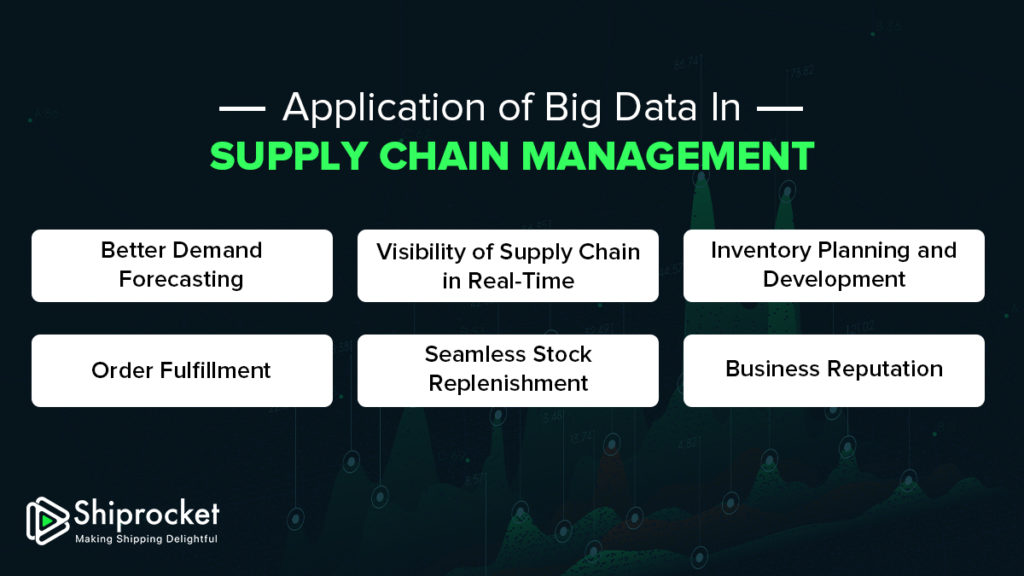Application of Big Data in Inventory Management
Big data has caused a stir in multiple industries across the world, due to many reasons. Be it research or its cutting edge application in industries, the world is leveraging big data in more than a few ways. Businesses from all walks of life are capitalizing on the benefits of big data and growing their business like never before. Right from understanding the evolving demands of the customer to making decisions that are concrete. Technology has brought greater visibility to the data that businesses have had since forever.

Even though every technology is a blessing, one of the most important technologies that have created quite an impact is big data. Big data has helped organizations regardless of their size make informed decisions that are concrete and backed by data, rather than their intuition. When it comes to the detailed processes taking place within a business, big data has completely reformed their dynamics for the better.
One such key area is inventory management and supply chain. When it comes to managing inventory, eCommerce and retail sellers still rely on a lot of manual processes. This not only increases the time taken to execute a task but also creates a space for more than a few errors.
While most businesses are not completely aware of this and keep on doing the business, as usual, the results are witnessed at the customer’s end. The little errors and delays end up hampering a perfect order delivery experience of customers and put the business in a bad light.
But, thanks to technology, most successful businesses are leveraging its different kinds and providing a seamless experience to their customers. Since inventory and supply chain form the backbone of any business, they should at no cost be left behind in planning among other elements of your business. This is where the role of big data comes into play. Big data can bring drastic changes to your inventory management plan and take it a notch higher without a lot of investment.
If you’re wondering how you can leverage big data for seamless inventory management, you’re at the right place. Here are the top applications of big data in inventory management-

Better Demand Forecasting
One of the best applications of Big data in inventory management comes from helping businesses forecast their demands. By understanding customer purchase patterns and outliers where a sudden increase or decrease in demand is observed, businesses can efficiently prepare for it in advance. The same can be passed onto the manufacturer or wholesaler of the good who supplies the goods for your business.
Demand forecasting can also help businesses understand which products are working for them and which aren’t performing well. With this information you can form strategies around marketing and choose to discontinue selling a particular product.
Visibility of Supply Chain in Real Time
A reason why a lot of customers are unhappy when they receive eCommerce orders is because they either receive it too late than the expected delivery date or it gets damaged in the transit. By making your supply chain visible, you can identify such issues and take a look at several processes running under it more carefully.
Big data helps in tracking each and every detail of your supply chain. Right from the movement of your parcels to understanding whether your parcels will reach on time at the customers’ doorsteps to identifying the issues in case of adversaries. Big data can be the solution to all your problems.
Inventory Planning and Development
Most eCommerce businesses suffer from the inventory planning issue. This means either they have too much stock with them that is not selling well or they have customer orders pouring in, but often run out of products. Either way you are hurting your business. In the former case you are wasting your money on inventory that is not required by the customer and in the latter you are losing out on a lot of orders and customers. With big data these issues can be taken care of by analyzing the demand more closely. It ultimately helps your business plan your inventory accordingly and make developments as required.

Order Fulfillment
Customers love receiving their products on time. If you’re offering a delivery date or an estimated duration within which you will deliver the products to your customers’ doorstep, make sure you fulfil the commitment. Order fulfilment is a crucial process for any business that decides the success or failure of the organization. With big data analytics, businesses can monitor their order fulfilment more closely and optimize it for faster order delivery. You can understand which parts of the order fulfilment process are causing a delay, based on which you can devise strategies to optimize it.
Seamless Stock Replenishment
Monitoring the demand of the customer manually can be a huge hassle for the seller. Similarly, ordering inventory intuitively is also a big no since the decision is not backed by the data. For seamless stock replenishment, sellers need to take decisions in the light of concrete data. Big data plays a major role here and can speed up the entire process by providing analytics on the market demands.

Business Reputation
Remember that it is your inventory that ultimately reaches the customer and creates an impact on them. No matter what the reason is, if they receive something defective, delayed or an altogether different product, it is your business reputation at stake. Using big data can simplify the backend processes for you and help you and make sure you come across as a powerful and trustworthy brand.
Final Thoughts
Big data for inventory management can make drastic improvements to your business. It can help automate several processes and optimize your inventory so that you have a competitive edge in the market. Remember that it is always best to stay one step ahead of your customer, this way you can fulfil their expectations and at the same time earn their loyalty. Big data can be your rescue in achieving all this and fulfilling your business goals.







